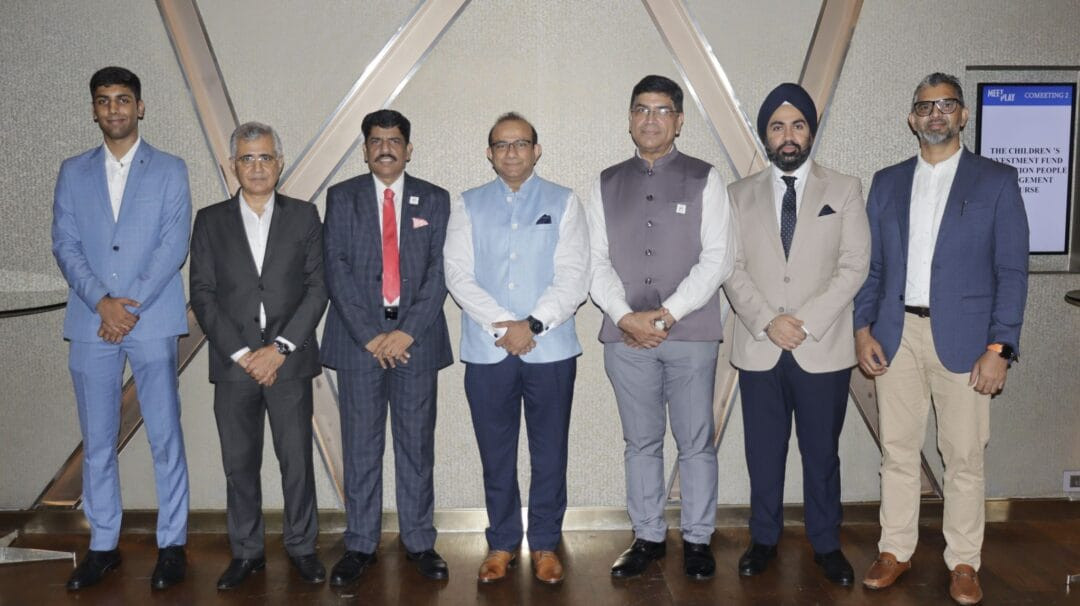India’s ambition to emerge as a global integrated logistics and air freight power station took a decisive step forward on June 20, 2025, with the Air Cargo Forum India (ACFI) revealing its strategic blueprint during a curtain yield for the upcoming ACFI annual conclave 2025. Changing World India on the front of Global Transformation, which is the front of the front of the front of the front of the front of the front of the front of the front of the front of the front of the bias of the bias of the bias of the prosperity of the prosperity of the worldwide. Emerging aviation discourse.
The ACFI Conclave, scheduled on July 11 at the Taj Palace in New -Delhi, is expected to be the action frameworks for the management of the industry -especially as the country positions itself as an important node in the reconfigured global supply chain architecture. With the air freight volumes in India, expected to exceed 10 million tonnes annually by 2030, the strategic recalibration of infrastructure, policies and digital ecosystems becomes essential.
Institutional vision
In his opening remarks, Sanjiv Edward, president of ACFI and GMR Cargo & Logistics, Sanjiv Edward, emphasized the need for the re -determination of India’s air freight story. ‘We are no longer just participants in the global supply chain; India is ready to become a center of air for air freight transformation. It demands new thinking – digitally, sustainable and safe. ‘
Edward’s statement indicates a clear shift from reactive activities to anticipating logistics planning, in line with India’s trade ambitions under national logistics policy and Prime Minister Gati Shakti initiative. The key to this vision is to integrate the fragmented cargo processing ecosystem of India into global harmonized digital and environmental compliance regimes.
Technology as a catalyst
A central highlight of the event was the inauguration of the ACFI Tech Arena, designed to emphasize innovations on artificial intelligence (AI), the Internet of Things (IOT), Warehouse Automation and Green Logistics. The initiative positions technology not only as an operational tool, but as a foundation infrastructure in the pursuit of global competitive air freight standards.
As India is the 38th place on the World Bank’s Logistics Performance Index (2023), the alignment of domestic systems with international benchmarks such as Iata’s one record and electronic airway button (e-AWB) standards can significantly improve, and the timelines of the shipping and reliability of the dew, and the reliability of the transport.
Policy forums: setting up the strategic track of the sector
The 2025 conclave will contain four theme sessions, each on a specific policy or operational pillar that is essential for the transition from the sector:
1. From turbulence to triumph
Satish Lakkaraju, which is replaced by the Ramesh Mamidala of Air India, has compiled this session around India’s growing air freight track amid geopolitical relocation. He has called on proactive policy adjustment, including the development of air corridors corresponding to new trade routes such as the India – Middle Easteurope Economic Corridor (IMEC) and India – Central Asia Aviation Networks.
This session reinforces the argument for corridor-based regulatory and infrastructure planning, rather than expanding.
2. Tech-powered cargo
With borderlong e-commerce volumes growing at double-digit rates, Lakkaraju highlights the need for interoperability between public platforms such as ULIP (Unified Logistics Interface Platform) and data systems in the private sector. Proposed policy actions include the incentive analysis for demand forecasting and standardization of freight community systems (CCS) on major airports.
3.. Green corridors and sustainable trade courses
Moderated by Keku Bomi Gazder, managing director and CEO of Aviapro Logistics, this session addressed the role of India in the promotion of the Agenda for Environmental, Social and Management (ESG) in air freight logistics. Gazder has called on policy clearance on the adoption of sustainable aviation fuel (SAF), carbon-committing frameworks and emission tracking infrastructure at cargo terminal.
Although India has not yet issued definite SAF mandates for cargo transport, this session can provide critical input in future draft regulations, especially in line with the long-term aspirational goals of ICAO (LTAG).
4.. Security of India’s cargo future
This session is also made by Mr. Keku Bomi Gazder led, and it did regulatory reinforcement. With increasing volumes of load with double use and a higher incidence of air disruptions worldwide, compliance with compliance comes as a competitive provision.
Gazder noted: “We need to include resilience in system design-it means modular infrastructure, real-time risk analysis and traceability of the end of the end.” The relevance of this session is increased, given global investigation into aviation safety and the growing role of India in high -value sensitive supply chains, such as defense logistics and pharmaceutical products.
Interested involvement and ecosystem signal
The event also recognized Cathay Cargo as the title sponsor, which is an indication of the interest of the stakeholders in Asia -Pacific in India’s evolution in the air freight. This participation may indicate increased commercial and policy alignment between Indian airports and regional transporters seeking the freight volumes of India origin, especially from two-part cities with high manufacturing production.
ACFI -Vise chair Dhiren Lakkaraju underlined the need for synchronized policy frameworks to unlock the full ecosystem value. “If we are serious about building cargo leadership, we need collective frameworks – not fragmented actions,” he said, strengthening the organization’s ambition to act as a interface of policy operations.
Broader implications
The curtain increase comes amid increased expectations of global trade agencies and investors regarding India’s role in the diversification of supply chain. With recent discussions at the WTO and ICAO focusing on trade facilitation, climate obligations and digital readiness, India’s air freight policy choices will be increasingly investigated against international obligations.
From the awards of the closing slot and customs-digitization to ESG-linked investment policies, the ACFI Conclave is ready to function as a policy laboratory for future guidelines. The strong thematic focus on compliance, green logistics and technology integration also corresponds to the current dialogues under the negotiations of the free trade agreement and the continued review of the National Civil Aviation Policy.
In the near term, Conclave stakeholders, including white papers, regulatory recommendations and a possible road map for SAF integration, will note concrete outputs, including white papers, regulatory recommendations. Industry experts also expect discussions on rationalization of cargo rate, cargo-linked SEZs and multimodal logistics strategies under the Gati Shakti framework.
An important year
The ACFI annual Conclave 2025 forms a decisive moment in India’s calendar for air freight policy. With a sector-wide transformation hanging of coordinated implementation of digital instruments, infrastructure investments and environmental measures, the Conclave’s policy discussions will have significant implications, not only for the domestic market of India, but also for its role in global freight values.
For air transport policies, regulators and industry leaders in the Asia-Pacific and beyond, India’s developing model can provide valuable insights in building resilient, sustainable and innovation-ready cargo systems in a rapid fragmenting world economy.


